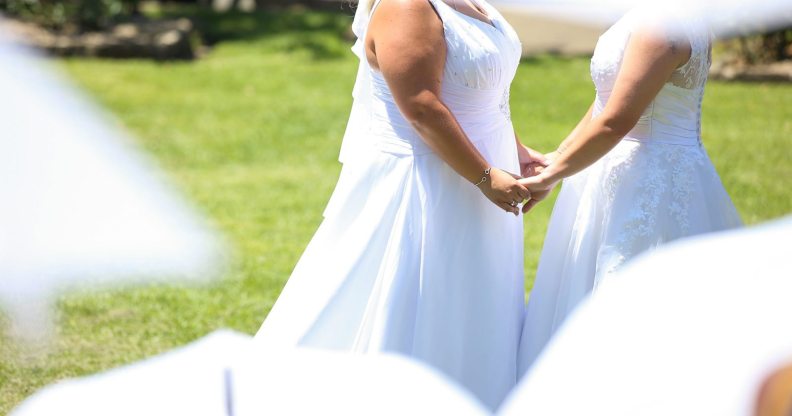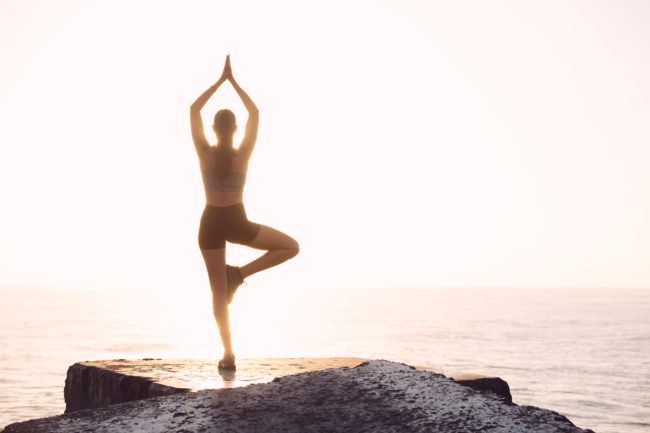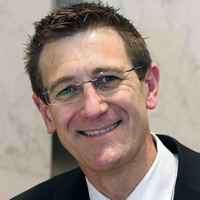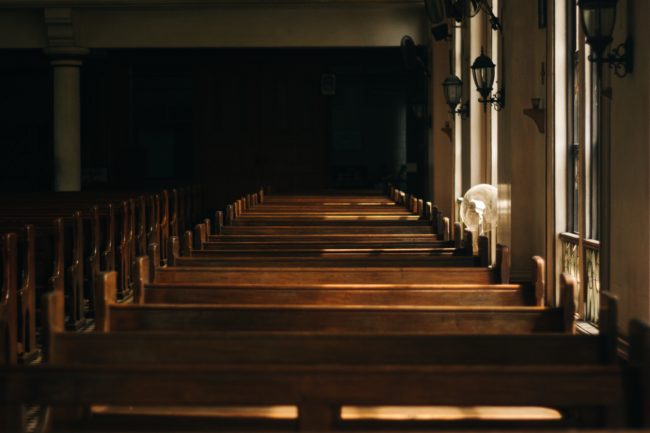Sydney bishops seek to ban gay weddings and yoga on all church property

SYDNEY, AUSTRALIA – DECEMBER 16: Same-sex couple Amy Laker and Lauren Price say their vows on December 16, 2017 in Sydney, Australia. Lauren and Amy are the first gay couple to be legally married in Australia, after same-sex marriage was legalised on 9 December 2017. The women – who have been engaged for two years – had originally planned on having a civil union, but were granted an exemption to the 30-day notice period to make their union legally binding under the new laws. (Photo by Caroline McCredie/Getty Images)
The Anglican Church in Sydney will vote on banning gay weddings, LGBT+ meetings and yoga on all church-owned properties.
A proposed policy that is set to come before the Synod of the Anglican Diocese of Sydney next week would prevent same-sex marriages from taking place across any of the 900 properties owned by the church, Australia’s ABC reports.
The proposed ban would “only allow the use of Church property for acts or practices which conform to the doctrines, tenets and beliefs of the Diocese,” extending not only to church buildings, but also to the church’s extensive portfolio of rental and commercial properties including those leased by secular groups.
The extensive list of banned practices include “advocacy for transgender ideology (e.g., gender-fluidity),” “solemnisation or blessing of a same-sex wedding,” “a reception venue for a same-sex wedding” and “advocacy for expressions of human sexuality contrary to our doctrine of marriage.”
Other things banned on church property include yoga classes, indigenous Australian smoking ceremonies, and all “promotion of non-Christian religions” or Christian groups “whose basis of faith differs from” Anglican principles.

Stock photo. A woman doing yoga outside, like everyone will have to from now on.
The extensive policy also clarifies that it is not permitted to produce pornography, run a brothel or sell narcotics from church property.
The proposal was put forward by the Religious Freedom Reference Group, chaired by Bishop Michael Stead. It is set to be debated at the Synod on Monday and Tuesday, according to the Sydney Morning Herald.
Stead, one of six deputies to the Archbishop of Sydney, told SBS: “The principle is simple—churches should not be compelled to use their property for purposes contrary to their doctrine.

Bishop Michael Stead (Diocese of Sydney)
“We also maintain that freedom of religion in Australia should allow us to use our property in accordance with this belief.”
He added that “the policy makes clear the church’s doctrine of marriage has not changed and that property use scenarios relate only to man/woman marriage.”

LGBT+ Christian campaigners have said that the policy is a direct attack on minority groups.
Steff Fenton of Equal Voices said the policy was an attack on “free speech.”
Fenton told the Guardian: “The very fact that they need an ordinance to tell people not to speak these views, means there are people in these communities who support the full inclusion of queer people in the Anglican church.
“I am thoroughly Anglican myself, I go to an Anglican church, I am queer. We are thoroughly invested and part of these communities. We are not outside. These have real consequences for us.
“[The new policy] goes against some of the very core teachings of the Bible. That there is openness and grace and love for all.
“This squashes freedom of speech and pushes for discrimination against people and vulnerable young people.”
The full list of things to be banned on church property is below:
- Use of church property for the promotion of non-Christian religions such as Hinduism, Buddhism and Islam, or for events the purpose of which is to attack, denigrate or undermine Christian beliefs.
- Use of church property by other (Christian) groups, whose basis of faith differs from the four principles [of Anglicanism].
- Use of church property for activities which promote a spirituality that is in conflict with true Christian Spirituality. For example, yoga classes which go beyond mere ‘positional yoga’ and involve spiritual practices such as meditative practices and chants derived from Hinduism, and smoking ceremonies, where the purpose is to cleanse a place from the residual spirits of those who have died.
- Abortion advocacy.
- Undertaking or making referrals for medical and/or surgical elective abortions.
- Production of abortifacient or abortifacient-like contraceptives.
- Undertaking stem cell research involving the destruction of embryos.
- Advocacy for, or assistance with, euthanasia.
- Manufacture of armaments or other weapons of war.
- Activities that incite racial hatred.
- Advocacy of or activities that incite discrimination against the disabled.
- Advocacy for transgender ideology (e.g., gender-fluidity).
- Production or distribution of pornography.
- Commercialisation of sexual services (e.g., a brothel).
- Solemnisation or blessing of a same-sex wedding.
- A reception venue for a same-sex wedding.
- Advocacy for expressions of human sexuality contrary to our doctrine of marriage.
- The production, promotion or sale by wholesale of tobacco.
- The commercial manufacture, distribution or sale of liquor (other than the sale and consumption of liquor on premises where the liquor is intended to be consumed with food sold on those premises for consumption on those premises).
- Any use in connection with narcotic drugs (including any prohibited drug, prohibited plant or drug of addiction) except as part of the normal trading practices of a registered medical practitioner, accredited residential aged care facility, pharmacist, chemist, dental or veterinary surgeon.
- For the purposes of gambling or betting.
The Anglican Church has faced a deep rift on LGBT+ issues globally. Anglican leaders in Scotland and the United States have adopted LGBT+ inclusive stances and permit same-sex marriage, but Anglicanism in the Global South is still dominated by hardline homophobic views.
The head of the global Anglican Communion, the Archbishop of Canterbury Justin Welby, has said a future split on the issue is unavoidable due to diverging opinions within AnglicanismBishops seek to ban gay weddings, yoga and ‘transgender ideology’ on all church property.

